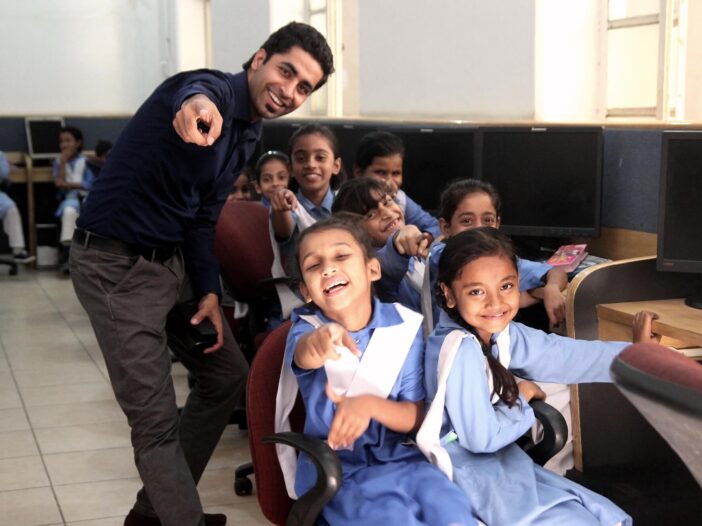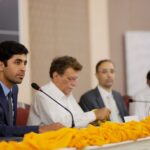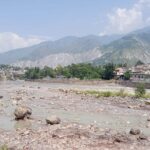
Let me confess that I had no idea, how far behind the people of Pakistan administered Kashmir are left, until I started traveling to other places nationally and internationally. As a child I did see many initiatives back then which were an indicator of a better State but with the passage of time they have disappeared.
Born and raised in the land of pure, people call it Kashmir, I have witnessed a time when there were so many playgrounds, public park, cinemas, food streets and much more. Instead of building on the same parameters and providing a much better way of living, all those things have become a memory. Unsurprisingly, a vast majority of Kashmiri youth do not have any clue of what Kashmir used to be like in 90s and early 2000s.
It is rather an astonishing experience to observe, how society starts accepting some of ugly and falsely created “realities”. We as a Kashmiri society have welcomed and normalised this act of injustice. I often question, who to blame? I don’t get any clear answer apart from going into a deep ocean of unsystematic thoughts.
Development is measured based on improvement in the lives of individuals and societies. Development as the word goes means ‘change for better’. Likewise in Kashmir, we associate development with better road infrastructure; good sanitation, round the clock electricity, higher employment rates and uninterrupted water supply. They all act as indicators of development for everyone.
It is a bitter reality that frequent power failures due to hours of load-shedding is paralysing day to day normal functioning in Kashmir. Students are not able to study properly, thus lag behind in the competitive world. Power failures are worsening an already poor healthcare system which is marked by a lack of equipment, qualified staff, sanitation and specialist services. Bad roads are now a headache for everyone, leading to inconvenience, dust clouds and increasing temperature. Public transport system in Kashmir has gone haywire; we have witnessed many causalities of the people who suffered due to poor road conditions. It takes hours to cover the distance of minutes.
Inadequate water-supply in most parts of the valley is another developmental issue which plays its part in further eroding the standards of living in Kashmir. There are number of water filtration plants installed at different places in almost all the districts of Kashmir, however, most of them are non-functional due to various maintenance issues. The diversion of the Neelum River to meet the electricity requirements of Pakistan has caused detrimental affects on the ecological system in Kashmir. The Neelum Jhelum Hydro Electric Project (NJHEP) has not only multiplied the issues of access to clean drinking water but also emerged as a major threat to the habitats of Kashmir. This project alone has put the future generations of Kashmir at risk and a series of uncertainties. I will write separately about this issues as it is not possible to explain the dark side of this project in this brief synopsis.
Sanitation problems are the most important to mention here, as there is no long-term vision for a proper disposal of domestic waste at a household, community or industrial level causing mass pollution and large-scale littering which is having disastrous impacts on health and wellbeing.
While all these issues work independently to make life worse, in combination they create havoc. I have been involved and worked in close coordination with the most marginalised communities across Kashmir. After having exposure to the international world, I can confidently say, they are living in the stone age.
Parents are willing to send their children to schools but access to schools is another challenge because of limited number of institutions. In one of my meetings with the then Prime Minister of Pakistan administered Kashmir, Raja Farooq Haider Khan, he confessed the horrible fact that over 1000 government schools which were destroyed in 2005 earthquake, are yet to be reconstructed. It’s been over a decade and thousands of children are getting education under open sky. Education is one of the most powerful instruments for reducing poverty and inequality. Ensuring access to quality education for all, in particular for the poor, suppressed and underprivileged population, is central to the economic and social development. Depoliticisation of education sector is the key towards an improved education system in the State. Also, increase in the budgetary allocation alone won’t help the situation, timely disbursement of funds to the concerned departments, monitoring, accountability, teachers training, curricula reforms and impact evaluation process needs to be implemented for the better results.
There is a need for the individual and collective efforts to sensitise the community and then the decision-makers. Social media is an effective platform where we can discuss and highlight such issues. An organised campaign around these basic yet important issues will not only help in shaping public opinion but can also influence the government and policy-makers.
Finally, I would request to all those Kashmiris who are currently based in foreign countries, to invest in Kashmir. Private investments in potential businesses will provide a real breakthrough to the people of Kashmir. We have a greater responsibility to use our influence to bring ease in the lives of the common public. If this is not the right time for change, then it’s never.
Author: Malik Wasim | Humanitarian and Social Activist





Leave a Reply